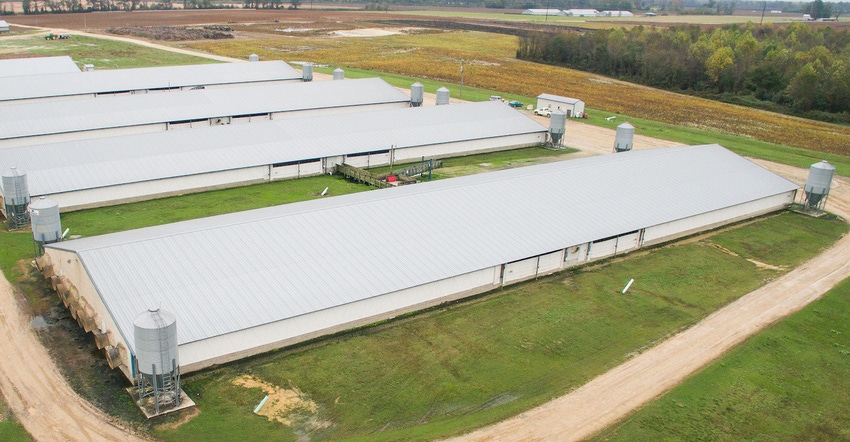Smithfield and North Carolina Pork Council say lawsuits threaten animal agriculture and rural way of life.

On Jan. 31 a panel of the U.S. Court of Appeals for the Fourth Circuit, comprised of judges G. Steven Agee, Stephanie D. Thacker and J. Harvie Wilkinson III, heard oral arguments in Smithfield Foods' appeal of the first of a series of trials in the North Carolina hog farm nuisance litigation.
Smithfield Foods, the plaintiff in the case, said the lawsuits threaten animal agriculture, rural North Carolina’s economy and the thousands of hard-working farmers who own and operate family farms in full compliance with federal, state and local regulations.
The company’s appeal brief said, “This suit is the tip of a spear aimed at North Carolina’s agricultural economy. … A great deal depends on the outcome of these coordinated lawsuits, including the livelihoods of many in eastern North Carolina’s predominantly agricultural communities.”
In the court filings, Smithfield’s legal team outlined seven “critical errors” made at trial related to judicial process and the application of law that improperly influenced the outcome of the case under appeal as well as the four subsequent trials, fostering more runaway verdicts.
“After years of litigation, we are pleased to have the opportunity to bring our arguments before the United States Court of Appeals for the Fourth Circuit. We are hopeful that the judges will remedy the errors of the trial court and protect the rights of an independent family farm that has been operating for 25 years without any regulatory violation and without neighbor complaints,” said Keira Lombardo, Smithfield executive vice president, corporate affairs and compliance.
In a blog post, the North Carolina Pork Council said since the 1970s, legislators in North Carolina have sought to make sure farming can continue and passed laws to provide certainty against attacks from outside interests while also ensuring that environmental protections are in place.
Hog farmers in North Carolina with more than 250 pigs must have a permit from the state. Once permitted, they are then highly regulated, with requirements for approved management plans, continuing education for farmers, continuous on-farm inspections and serious penalties for bad actors.
However, the North Carolina Pork Council stated, “one trial judge, Earl Britt, has upended that regulatory and policy framework with multiple erroneous decisions – judicial decisions that fostered several runaway monetary awards, including excessive and unwarranted punitive damages. Britt’s decisions are in stark contrast to the rulings of a substitute judge who presided over one of the cases and rightly ruled there is no basis for punitive measures. Notably, some juries in these cases deadlocked, then reached compromise verdicts for very low amounts – as low as $100.
“This uncertainty from the courts is harmful to any type of business – and certainly to our farms, which provide safe, nutritious and affordable food. Our farmers care for their communities and the environment and take pride in the hard work of producing beloved pork products for all,” the council added. “Across the state, farmers in all types of agriculture are now looking to the Fourth Circuit judges to correct the mistakes made by Britt, to ensure these unfair outcomes do not stand and to provide farmers with the certainty and legal guidance that will ensure these attacks on agriculture will come to an end.”
About the Author(s)
You May Also Like




.png?width=300&auto=webp&quality=80&disable=upscale)
